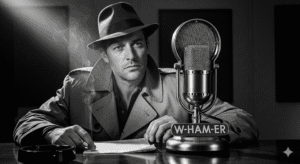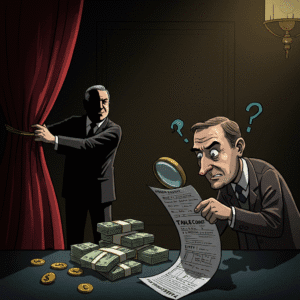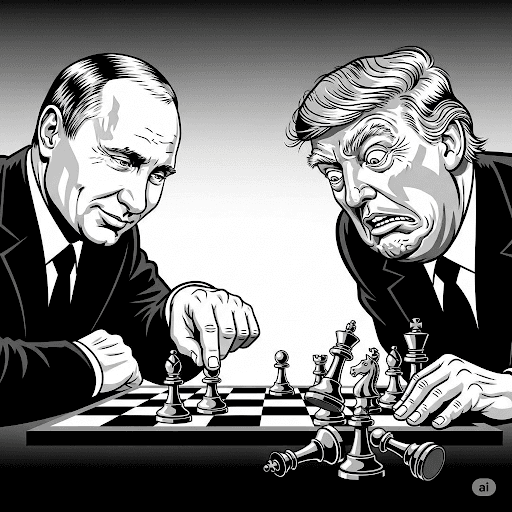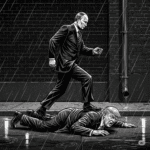So, you’re listening to the news, and you see it: the big headlines, the tough talk, the President of the United States and Vladimir Putin, still “at odds.” And then you hit the nail right on the head: “Putin has all the cards.”
Jack Hammer’s here to tell you, that “at odds” might be a finely tuned performance, a geopolitical pantomime for the cameras. Because when you strip away the bluster and the tweets, the cold, hard reality is that Putin operates from a position of consistent, ruthless calculation, while the West, and particularly the US, often looks like it’s improvising, driven by short-term cycles and internal squabbles. And yeah, right now, it sure as hell looks like Putin’s got the royal flush.
Putin’s Hand: The Ace of Stability (and Ruthlessness)
First off, let’s understand the man across the table. Putin isn’t campaigning for re-election every few years. He built a system designed for his long-term rule, consolidating power, controlling the narrative, and silencing dissent. That gives him a singular, unwavering focus. His objectives are clear, brutal, and consistent: re-establish Russia’s “great power” status, secure a buffer zone against NATO, and destabilize anyone who gets in his way.
While one side is dealing with legislative gridlock, fluctuating public opinion, and shifting cabinet appointments, the other is executing a decades-long strategy. Putin’s chess game is played over generations, not election cycles. He knows exactly what he wants, and he’s not afraid to sacrifice pawns – or whole populations – to get it. That’s a hell of an advantage in any Trump-Putin dynamic.
The Global Leverage: Energy, Cyber, and Chaos
So, what are these “cards” Putin’s holding? Let’s break down his hand:
- The Energy Club: While Europe has scrambled to reduce its reliance on Russian gas, don’t think for a second that energy isn’t still a weapon. Russia has successfully re-routed its massive oil and gas exports to new markets, notably China and India, securing vital revenue. This gives him continued economic leverage and insulation from some Western sanctions, letting him shrug off pressure tactics that might cripple other nations.
- The Cyber Blade: Russia is a top-tier player in cyber warfare. We’re talking about state-sponsored hacking groups capable of espionage, sabotage, and, most critically, disinformation campaigns. They’ve shown a chilling ability to meddle in elections, sow division, and undermine trust in democratic institutions – not just in the US, but across Europe. When you can subtly influence public opinion and destabilize an adversary from within, that’s a silent, powerful weapon.
- The Geopolitical Grind: Look at Ukraine. It’s a brutal, drawn-out war, but it’s also a meat grinder for Western resources and resolve. Every Patriot missile sent, every round of artillery supplied, is a drain. Putin’s strategy of prolonged conflict, coupled with new alliances (like receiving munitions and even troops from North Korea), keeps the West preoccupied, fracturing focus away from other global challenges. And let’s not forget Russia’s increasing influence in places like Africa, securing new military and strategic footholds that challenge US and NATO interests.
The “At Odds” Illusion?
Now, about them being “at odds.” Is it real animosity, or part of a more intricate dance? When you hear threats of new tariffs and ultimatums coming from one side, and then see the other side’s drone assaults spiking or alliances quietly solidifying elsewhere, you have to ask: who’s really reacting, and who’s controlling the tempo?
There’s a dangerous whisper in the wind that some of the delays or shifting policies from the US side aren’t accidental. Whether it’s perceived indecision on aid, or a strategy to “appease” for future negotiations, Putin knows how to exploit ambiguity. He understands the electoral clock, the public’s weariness, and the internal squabbles that can weaken a nation’s resolve. He’s not just playing the hand he’s dealt; he’s often stacking the deck before the cards are even out.
The Bottom Line: Jack Hammer Says Wake Up
The news cycle gives us a snapshot, a fleeting glimpse of two powerful men exchanging barbs. But beneath that surface, Putin is playing a long game, leveraging Russia’s enduring assets and his own absolute grip on power. He’s got the clear objectives, the consistent strategy, and the ruthlessness to execute it.
When you weigh that against the often reactive, politically polarized nature of US foreign policy, it’s not hard to see why Vladimir Putin often appears to be holding the better hand. It’s not just about who says what; it’s about who’s got the long game in mind, and who’s willing to play dirty to win it. Jack Hammer’s telling you: unless the US starts playing chess with the same cold, calculating focus, that perceived “at odds” relationship will continue to see Putin coming out ahead.
Yours truly, Jack Hammer.














